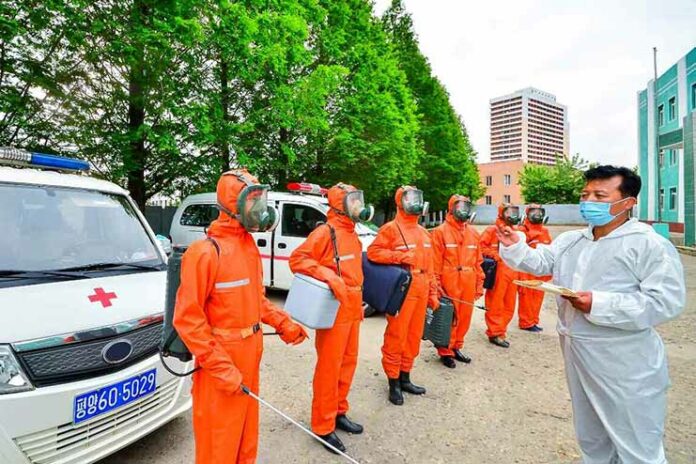
Daily NK recently sat down with three defectors with family members still in North Korea and asked their opinions about the current COVID-19 situation in North Korea.
Interviewee No. 1: “A,” 30s, in South Korea since 2018
Upon learning about the COVID-19 outbreak in North Korea, the first thing “A” did was call a broker.
“After hearing that the virus had spread to my hometown, my first concern was whether something might have happened to my father, who is an invalid. I got immediately in touch with the broker and asked about sending money.”
But the broker told “A” that money couldn’t be wired and promised to get in touch when the situation changed.
“I was really angry. It’s impossible to express what it feels like to be totally helpless without even knowing whether your family is starving to death or dying of COVID-19,” “A” said.
Fortunately, the broker got in touch with “A” at the end of last month to say it was now possible to wire money. So “A” was able to send KRW 800,000 to their family in North Korea — that was the amount left over after subtracting the 60% broker’s fee from the initial sum of KRW 2 million. Despite the steep fee, “A” was grateful just being able to send the money and didn’t hesitate for even a minute.
“I’ve been less worried after sending the money. It was heartbreaking to hear that my parents are too sick to even get out of bed. All I can do is keep praying that my family will quickly recover,” “A” said.
Interviewee No. 2: “B,” 20s, in South Korea since 2017
After learning about the COVID-19 lockdown, the first thing that occurred to “B,” who is from a region in the interior of North Korea, is that many people must be starving to death.
“The interior regions are different from the border regions, so a lockdown can cause many people to starve to death. On top of that, they’re in the middle of the barley hump” — a lean time before the barley harvest — “a time so tough that it’s sometimes called the ‘death hump.’ People have to subsist on wild herbs when they run out of food, but herbs are becoming less available every year,” “B” said.
“Locking people down at such a time amounts to telling them to drop dead. Since I’m all too familiar with the situation in North Korea, I’m more worried about my family now than I’ve been before. What’s even more upsetting is that there’s no way to help my family right now, as much as I want to.”
Interviewee No. 3: “C,” 30s, in South Korea since 2016
Since free medical care is effectively no longer available in North Korea, there’s a widening gap in care between the capital of Pyongyang and other parts of the country. Along with poor equipment and a medication shortfall at hospitals in the countryside, doctors there are often incompetent, leading to frequent misdiagnoses.
As a result, sources say, most people in those areas don’t visit the doctor when they get sick — instead, they get their prescriptions filled by unlicensed drug vendors.
“C,” who was born and raised in a rural area in North Korea, offered some insights. According to “C,” purchasing medicine from unlicensed individuals for self-treatment is not even an option for people in those areas.
“People in the countryside would have to sell grain to buy medicine, but they’re also the ones facing the worst food shortages. So when farmers get sick, they often have to go without medication, which they can’t afford to buy. That’s why the fatality rate is higher there than in urban areas.”
“Thinking back now, I resent the fact that my family members were born in a rural area and have spent their lives in agriculture. Since the borders are closed, I can’t send them any money. I can only pray that they’re healthy and haven’t come down with COVID-19,” “C” said.
Translated by David Carruth. Edited by Robert Lauler.
Please direct any comments or questions about this article to dailynkenglish@uni-media.net.

















